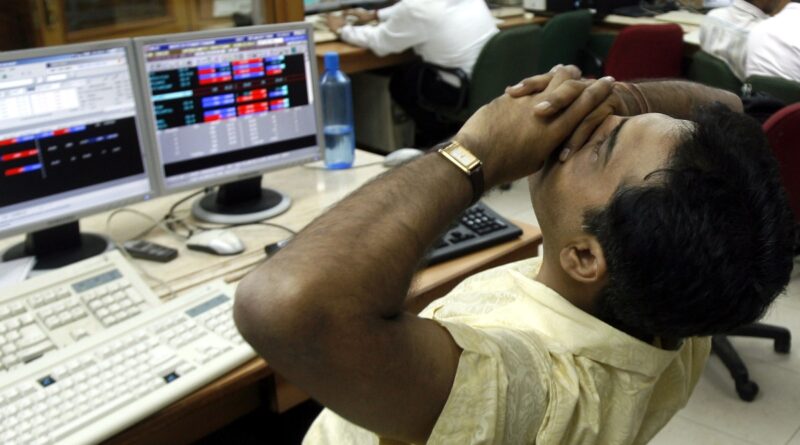Global Markets Are Falling: Why Stocks Are Falling
Concerns about the US recession and rising interest rates have made global markets a little nervous. Learn about the causes of market volatility.
For most of the year, investors around the world lifted stock markets, convinced that central banks had succeeded, if they stopped, in getting inflation under control, and were encouraged by the healthy economy of US and the promise of artificial intelligence.
In June Nvidia, the leader in AI chipmaking, had joined Apple and Microsoft as USD 3 trillion companies. By mid-July, the S and P 500, the Nasdaq composite and Japan’s Nikkei 225 had risen the most. Investors believed that the high interest rates set by the US Federal Reserve would moderate inflation without causing a major slowdown in the US economy, the world’s largest.
That belief has gained momentum in the past few days. Investors are heeding warnings that Nvidia and other big tech stocks are too expensive, and that big spending on AI may not translate into profits for a while. Weak numbers in the labor market, manufacturing and construction last week raised concerns about the US recession and criticism that the Fed waited too long to cut rates. Meanwhile, the Bank of Japan has begun raising interest rates, causing chaos in Japanese markets.
On Friday, the Nasdaq composite was corrected, down 10 percent from its all-time high. On Monday, the Nikkei fell more than 12 percent, its biggest drop since 1987.
By midday in America, the S and P 500 were down 2.2 percent and the Dow Jones Industrial Average was down 2 percent. The prices of oil and other commodities fell due to the economic crisis.
US traders are betting the Federal Reserve will have to cut rates by half a percentage point in September instead of the usual quarter. Others want to reduce the rate of emergencies. However, there are dissenting voices who say that the sale is actually a good thing because the price of the property has gone up a lot.
Here’s a look at what’s causing the turmoil in the markets:
Inflation and central banks
Although the Fed hasn’t raised its benchmark rate in a year, interest rates remain at a two-decade high after the US central bank raised them 11 times starting in 2022 for a two percent discount.
Part of the Fed’s goal was to cool the hot labor market that rose after the pandemic and the rest of the U.S. economy collapsed.
Investors thought the Fed and other central banks were on track, even though inflation was still above their targets. The European Central Bank and the Bank of England cut interest rates once, and the Fed has signaled it is ready to start cutting rates in September.
Worries about the US economy
There was some weakness in the US economy, particularly spending by lower-income Americans, but overall the economy grew at a 2.8 percent pace in the second quarter. Then came last week’s economic reports.
On Friday, the government’s monthly report on the labor market showed a sharp decline in hiring by US employers. Concerns that the Fed may keep the economy tight for too long are widespread in the markets. Reports on production and construction were also sparse.
Big Tech
While technology stocks have been the market’s biggest winners this year, members of the influential group of stocks known as the “Magnificent Seven” underwhelmed investors in their latest reports. of wages.
These few Big Tech stocks have driven the S and P 500 to record highs this year, in part because of the artificial intelligence technology boom. But their performance turned upside down last month as investors worried their prices were too high and their profit expectations were too difficult to meet, especially about artificial intelligence.
Apple fell 5 percent on Monday after Warren Buffett’s Berkshire Hathaway revealed it had reduced its ownership stake in the iPhone maker. Nvidia lost more than USD 238 billion in market value Thursday and Friday and the stock was down another 7 percent on Monday.
The decline of Japan
The Nikkei posted its worst two-day decline, down 18.2 percent in the past two trading sessions. The wave of sales hit all kinds of companies, including Toyota, Honda and computer maker Tokyo Electron.
Share prices have fallen in Tokyo since the Bank of Japan raised its interest rate on Wednesday.
Analysts said another factor that contributed to the decline in share prices was the stock market. That when investors borrow money in a country with low interest rates and relatively little capital, such as Japan, then they invest those funds in areas that will provide high returns. But higher interest rates, along with a strong Japanese yen, could force investors to sell stocks to pay off those loans.
The yen rose to 143.25 per US dollar on Wednesday morning. It was over 160 during the year.
DISCLAIMER – This article is from an affiliate feed. The original source is responsible for the accuracy, opinion and personality of the content. Opinions expressed may not reflect those of rediff.com India Limited.
#Global #Markets #Falling #Stocks #Falling
